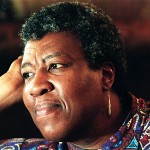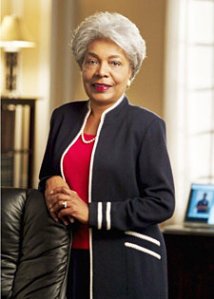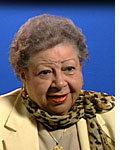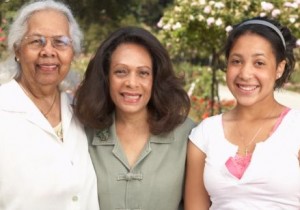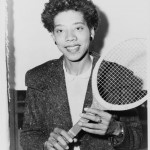Connect with Gloria!
Bring Gloria to Speak
Featured Upcoming Event
Wednesday, Oct. 2-Nov. 13, 2013 Gloria will teach a 6-week online course "9 Practical Leadership Power Tools to Advance Your Career". This is a Take The Lead event in partnership with Arizona State University Online. Participants will receive a certificate to enhance their resumes along with practical skills and understanding of power dynamics in the workplace. Don't miss this opportunity and register today!
More events here.
Buy Gloria’s Latest Book
-
-
-
Accolades

"With heartfelt encouragement ... (including strategies for including men in feminist causes), this guide is accessible to all."
~Publisher's Weekly
 "Female Writers Kicking Up Literary Dust"
"Female Writers Kicking Up Literary Dust"
~Women's e-News"Top 30 Political Mom Bloggers"
~The Stir"Gift Ideas for the Change Agents on Your List"
~Claire Mysko"Feminist Reading List"
~Deep Muck Big Rake"5 Must-Read Books for Women"
~Hello LadiesRead additional Media Buzz here.
-
Recent Posts
Recent Comments
- Gloria Feldt; An Inspiring Woman » CreativeBizHub on She’s Doing It: LisaBeth Weber Pins Pack Message Wallop
- Gloria Feldt on Stuck? Meet Jake and the Power of Letting Go to Move Forward
- Leslie on Stuck? Meet Jake and the Power of Letting Go to Move Forward
- Liz @ Creative Liberty on Sandberg: Are You Bossy or Merely Showing Leadership Skills?
- Gloria Feldt on Sandberg: Are You Bossy or Merely Showing Leadership Skills?
Categories
Listen to My Podcasts

Stacey Gualandi of The Women's Eye interviewed me about--what else--women and power.
Shelley Irwin of NPR asks me why I believe that no one is holding women back but themselves.
Suzanne Braun Levine and I discuss No Excuses on The Fiesty Side of Fifty on Blog Talk Radio.
Nicole Sanders talks to me about No Excuses on her show Radio or Not, on Progressive Talk Radio.
Dennis Lambert of KJZZ's "Morning Edition asks me why I wrote No Excuses.
Talking to Terry Hernon MacDonald about No Excuses over at Single Women Rule.
Discussing No Excuses with Joe Conason on Book Talk Radio.
Talking with Amanda Marcotte on RH Reality Check about women and power.
See Jane Do interview, encouraging women to step into positions of power and leadership – now!
Speaking with MadamaAmbi about No Excuses
Women's Relationship to Power and Leadership
Octavia Butler, A Pioneer In Science Fictionby Guest on March 14th, 2011in Know Your History Last Saturday’s open thread asked who your fictional role models have been. As you’ll see from the comments on that post, they are many and varied. But some I hadn’t known about until I received Jezebel writer Anna North’s engaging profile of novelist Octavia Butler. It makes me want to buy her books immediately and start digging into them. Read on, enjoy, and keep adding to the list of female fiction role models who helped to shape you.
Butler grew up in Pasadena, raised by a single mother who’d had to leave school after the third grade. Of her own early years, Butler has written,
But she also discovered writing at the age of 10 – she chose science fiction, she says, because “because it was so wide open. I was able to do anything and there were no walls to hem you in and there was no human condition that you were stopped from examining.” Her books – the first, Patternmaster, was published in 1976, and the last, Fledgling, came out in 2005 – did more than examine. They also reflected the deep inequalities plaguing America – and humanity as a whole — and sounded a warning for the future. Butler said her novel Parable of the Sower “calls people’s attention to the fact that so much needs to be done and obviously [there] are people who are running this country who don’t care.” Read the full article...{ 1 comments }
Women’s History Open Thread: Fictional Role Modelsby Guest on March 12th, 2011in Know Your History
{ 5 comments }
Best of International Women’s Day: Be a Front Porch Ladyby Guest on March 11th, 2011in Know Your History
Silver-Parker grew up in rural North Carolina, in a two-bedroom house, with her parents and many siblings. She recounted a screenplay-like story about a group of women she called: The Front Porch Ladies. “The Front Porch Ladies were the women who sat on their front porches as we came home from school,” Silver-Parker said. “They would treat our business like it was their business.” When Silver-Parker was accepted to college, imagine her surprise when the Front Porch Ladies showed up on her front porch. There they all stood, having brought with them a full set of blue luggage for her to take off to school. “From time to time at college, I would get letters from the Front Porch Ladies,” Silver-Parker told the audience. “They would write words of encouragement, and sometimes include a dollar or two.” Read the full article...{ 3 comments }
The Value of Women’s Workby Gloria Feldt on March 10th, 2011in Create a Movement, Know Your History, Workplace
Any idea when this statement was made? OK, a clue: I recently ran across it in a speech given by Harriot Stanton Blatch at a suffragist convention–in 1898.
{ Comments Off on The Value of Women’s Work comments }
Edna St. Vincent Millay, First Woman Pulitzer Poetry Winnerby Gloria Feldt on March 9th, 2011in Know Your History
…and the dramatic:
So when Bonnie McEwan of Make Waves sent me Millay’s poem, “Recuerdo,” along with a note that the poet who liked to call herself “Vincent” and took many lovers during her life, had been the first woman to receive a Pulitzer prize for poetry in 1923, I immediately conjured the sights and floral smells of Mrs. Day’s rather formal home in Temple, Texas – walking distance from my elementary school. She always wore her perfectly coiffed grey hair up and fastened with combs, and practiced the graciousness she patiently tried to teach all of us rowdy kids. She would have been Millay’s contemporary–a shocking thought to me now, since I think of the poet as fuzzy history while the teacher remains sharply drawn in my mind. Read the full article...{ 2 comments }
We Need a Million for a Billionby Guest on March 8th, 2011in Know Your History, Politics
It’s time to hold world leaders accountable for their promises. Seventeen years ago world leaders gathered in Cairo, Egypt, and declared access to reproductive health care to be a universal right, but for many that right has not been realized. An estimated 215 million married women in the developed world want to avoid a pregnancy, but are not using a modern method of birth control. Tens of millions of young men and women are at risk of acquiring HIV/AIDS and other sexually transmitted diseases. { 1 comments }
Breaking Barriers: Kentucky’s First Female African American Senator, Georgia Davis Powersby Guest on March 7th, 2011in Know Your History, Politics
It was never her intention to become a politician, or even to work in government, but in the spring of 1962 Powers was introduced to politics upon the suggestion of fellow church member Verna Smith. Upon Ms. Smith’s advice she joined the U.S. Senatorial campaign staff of Wilson Wyatt. This led to six more years of managing mayoral, gubernatorial, and congressional campaigns. She also became heavily involved in the civil rights movement, leading the Allied Organization for Civil Rights in promoting statewide public accommodations and fair employment law in the early 1960’s. In 1964, she was one of the organizers of a march on the capital in Frankfort in support of equity in public accommodations, in which Dr. Martin Luther King and baseball legend Jackie Robinson participated. In 1964 she was the first black woman elected to the Jefferson County Democratic Executive Committee. But after two years she resigned after becoming discouraged by the fact that the Committee had not discussed a single one of her proposals. In 1966 she worked in the bill room during the legislative session for the Kentucky House of Representatives. This gave her the opportunity to see first hand how government functioned; as a result her political ambitions grew. Read the full article...{ Comments Off on Breaking Barriers: Kentucky’s First Female African American Senator, Georgia Davis Powers comments }
Women’s History Month Open Thread: Family Tiesby Gloria Feldt on March 5th, 2011in Know Your History, Personal Relationships
{ 6 comments }
Women’s History Friday Roundup: The Rally Editionby Gloria Feldt on March 4th, 2011in Create a Movement, Define Your Own Terms, Know Your History, Politics
Last weekend a Walk for Choice was held in cities across the globe. Here is a roundup of photos from rallies across the country–the decentralized nature of the walk made it impossible to get exact numbers, but the geographic dispersion was impressive. This Is a Sampling of What a Pro-Choice Rally Looks Like: NYC – Feministing But we should not have to fight these battles over and over… If you’ve got photos that you would like to add to our historical record (however “unofficial” it might be), please leave a link in the comments section. And by all means, take a moment to share your most proactive and innovative thoughts about what history you want to write for the future of reproductive rights, health, and justice. Read the full article...{ 2 comments }
Sportswomen – How Alice Marble Led the Way for Althea Gibsonby Guest on March 3rd, 2011in Know Your History
However, Alice Marble’s significant role, as the leading public proponent and catalyst for Althea Gibson to break the color barrier in U.S. tennis, should not be overlooked. Women’s contributions are often not properly credited in history and sports books and media coverage. Researching my Women in History and Making History Today — 365-Days-A-Year Database and A WOMAN’S BOOK OF DAYS, I’ve confirmed that less than ten percent of the references in new history textbooks are about women. “Anonymous” may be a woman. Read the full article...{ 1 comments }
|

